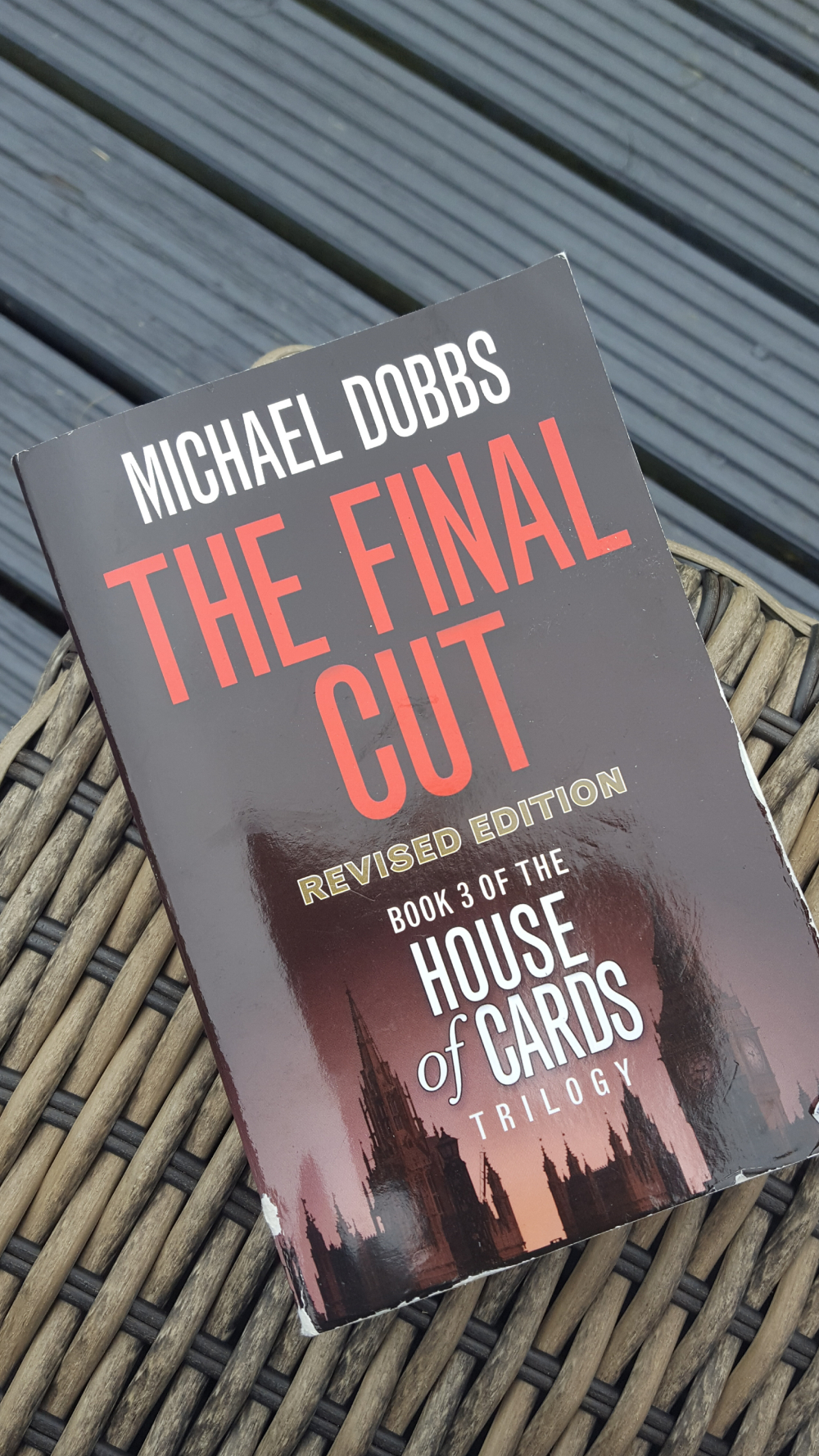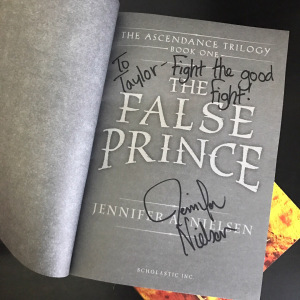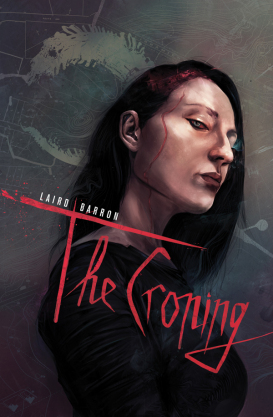
Author: Michael Dobbs
Publisher: Harper
Published: 1995 (this edition 2015)
ISBN: 978-0-00-737515-8
After reviewing the first book in the House of Cards series here, and the second here, I’m finishing my bookish journey by reviewing The Final Cut. The last book in Michael Dobbs’s trilogy jumps to ten years after the first two novels, with Francis Urquhart about to become the longest serving Prime Minister of the century. However, an on-going conflict in Cyprus, and political opposition from his younger rival Thomas Makepeace, cast doubt over how much longer Urquhart can hold his position.
First thing’s first, I’ll discuss my main issue with this book- how can anyone who read To Play the King, the second book in the series, be expected to believe that Urquhart could have been elected after its ending? We last saw an embattled Urquhart despairing as both the monarchy and the press turned against him, yet Dobbs now asks us to passively accept that he still won the General Election that was supposed to be taking place just after the novel’s ending. I understand that Urquhart is intended to seem cunning enough to worm his way out of any strife, but this situation seemed too dire for even him to escape. The fact that Dobbs does not state how exactly Urquhart was able to claw back public opinion, makes readers wonder whether the author chose not to comment after realising he could not propose a realistic explanation. Even more questionable is the fact we are expected to believe Urquhart has held onto power for 10 years, with his many opponents presumably deciding to just back down once he was elected for the first time. Credit where credit’s due, I think this may be the first book I’ve ever read that managed to begin with a plot hole!
My other issue with this book also relates to the plot, albeit the Cyprus situation rather than the plot craters. At first, the conflict in Cyprus was easy to follow- there was a debate over which country- Greece or Turkey- should own which parts of the island. Predictably, said debate became more complex and problematic when oil was discovered off the shore of one part of the island. So far, so good. Yet, before long, the storyline had somehow descended into an overly-complex, dull tale of various diplomatic disagreements, with Urquhart deciding to wade into the conflict. Its one saving grace, and main purpose, was providing an excuse to include a flashback to Urquhart’s own time serving in Cyprus, back in the 1950’s. Without disclosing the novel’s ending, I will say that a backdrop of some kind of war was integral to the plot, but did it really have to be so overly complicated?
Moving on to the characters, I must express mixed feelings about Makepeace, Urquhart’s main political rival. One the one hand, as he leaves his position as Urquhart’s Foreign Secretary, in hope of pursuing other, ‘world changing’ ventures, he certainly fulfils his purpose: to satirise the pretentious, young politician who misguidedly believes both that he knows better than his elder colleagues, and that he can achieve his dreams. He also helps build on the idea that few politicians are as calculating or cunning as Urquhart, who ultimately outwits Makepeace, even if public opinion did sway towards his young rival for a little while. But, as ever, there is an issue to be raised about Makepeace- why on earth would such a senior politician involve himself in a cause just because he is attracted to the woman who brings it to his attention? That’s essentially what Makepeace does when informed of the campaign to find the unmarked graves of those killed in Cyprus’s many conflicts. A short while later, we are expected to believe this English man, with no obvious connection to either Greece or Cyprus, has become a symbol of resistance for Cypriots who are unhappy with Urquhart’s relations with their country.
Another character whose treatment bemused me was Mortima, Urquhart’s wife. Dobbs finally liberates her in this novel, as I had been crying out for in my reviews of the rest of the series. She is now a worthy partner for her husband; almost as intelligent as him. Gone are the days of bemoaning the Downing Street décor; here are the days of involvement in politics. The only scandal she causes in this book is the result of her dubious attempts to obtain funding for the library she intends to establish upon Urquhart’s retirement, not the result of the tabloid press finding out about her extra-marital affairs. As someone who wanted her to be more like her television counterpart Claire Underwood, this should have come as a welcome change… Except for the simple fact that, as ever, the transformation does not seem realistic, due to the extent to which her character has changed. The same can be said of her marriage to Urquhart, who is now her ‘soul mate’, rather than a man she seemed to have married purely because his career meant she didn’t have to work. The transformation of Mortima is the perfect example of wishing for something, only to find yourself disappointed.
Urquhart himself is also a changed man, as age has meant that, for the first time ever, he seems to show a degree of vulnerability. Not only has he declined physically, his wits are no longer as sharp, and there are whisperings that it is time he retired. His response to this? To become more ruthless than ever as he attempts to cling to power. He is like a wounded animal- he may be weakened, but he can still be dangerous to anyone who gets too close. The ending of the novel would seem like defeat to some, yet for me it actually redeemed much of the bland plot, as I felt it was a fitting conclusion for a character determined both to be remembered by history, and to determine his own fate.
So, now for the biggest question of all- is the House of Cards trilogy as good a the television adaptation? Personally, I would say yes. Because, sure, books two and three may not have been as gripping or unnerving as the original, but the same can be said of the most recent series of the TV show. Both continue for too long, to an extent when they are no longer realistic. But am I hooked? In both cases, yes! When the protagonist is as compelling as Francis Urquhart, the actual plot of the novel seems like a secondary matter. Urquhart really does redeem an otherwise perfectly average political thriller.
Rating: ⭐⭐⭐1/2 (3.5/5)
Advertisements Share this:





